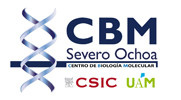Physiopathology studies and therapeutic approaches in animal and cellular models of neurometabolic diseases
Prof. Lourdes Ruiz-Desviat. Catedrática. Departamento de Biología Molecular. UAM.
Prof. Eva Mª Richard Rodríguez. Profesora Titular. Departamento de Biología Molecular. UAM.
Our research is focused in neurometabolic diseases, propionic acidemia (PA) and hyperphenylalaninemias (HPAs) among others, enzymatic deficiencies of autosomal recessive inheritance, characterized by the toxic accumulation of precursors and lack of downstream metabolites.
Previous results from our group include the generation of patient-derived iPSCs from PA patients’ fibroblasts and a CRISPR/Cas edited isogenic control. In this period, we have differentiated them to cardiomyocytes which have been characterized in relation to the biochemical phenotype, expression of miRNAs and genes in different signaling pathways related to mitochondrial function and cardiac alterations, which are one of the major life-threatening complications in patients with the disease. We have also successfully differentiated iPSC to neuronal precursors and astrocytes, which in PA samples show a maturation defect, mitochondrial dysfunction, increased ROS levels and altered miRNAs expression signatures.
In a collaborative study and using a hypomorph PA mouse model, we have demonstrated that pharmacological inhibition of O-GlcNAcase, the enzyme removing O-GlcNAc from proteins, and specifically from CPS1, catalysing the first step in the urea cycle, resulted in clinically relevant reductions of systemic ammonia, hallmark of PA disease, a strategy that can also be applied to other genetic and acquired liver diseases.
Ongoing projects related to splice modulation include providing the proof of concept of the therapeutic use of antisense oligonucleotides (ASO) for a number of neurometabolic gene defects. For this aim, we have generated by CRISPR/Cas novel cellular and animal models with specific splicing variants in the PAH gene, responsible for phenylketonuria. The aim is to study the molecular pathogenesis of patient specific mutations and to identify therapeutic ASO to correct the splice defect. In other gene defects, we have focused on the correction of the aberrant insertion in the mRNA of pseudoexons activated by deep-intronic mutations. Such events are heavily underreported, a situation that may change with the incorporation of transcriptome sequencing as part of the diagnostic pipeline. Thus, we have identified several pseudoexons prone to activation by different point mutations in the PTS gene, responsible for a tetrahydrobiopterin (BH4) synthesis defect resulting in hyperphenylalaninemia and monoamine neurotransmitter deficiency. We have identified several ASO that can correct the aberrant insertion of four overlapping pseudoexons activated by different mutations, resulting in protein recovery.
In addition to our work with splicing defects in neurometabolic diseases, we have recently identified a series of ASO that modulate missplicing of a neuronal microexon involved in autism spectrum disorders and schizophrenia (collaboration with Dr. Jose J Lucas, CBMSO and Dr. Brage S. Andresen, University of Southern Denmark; patent PCT/EP2022/077882).


